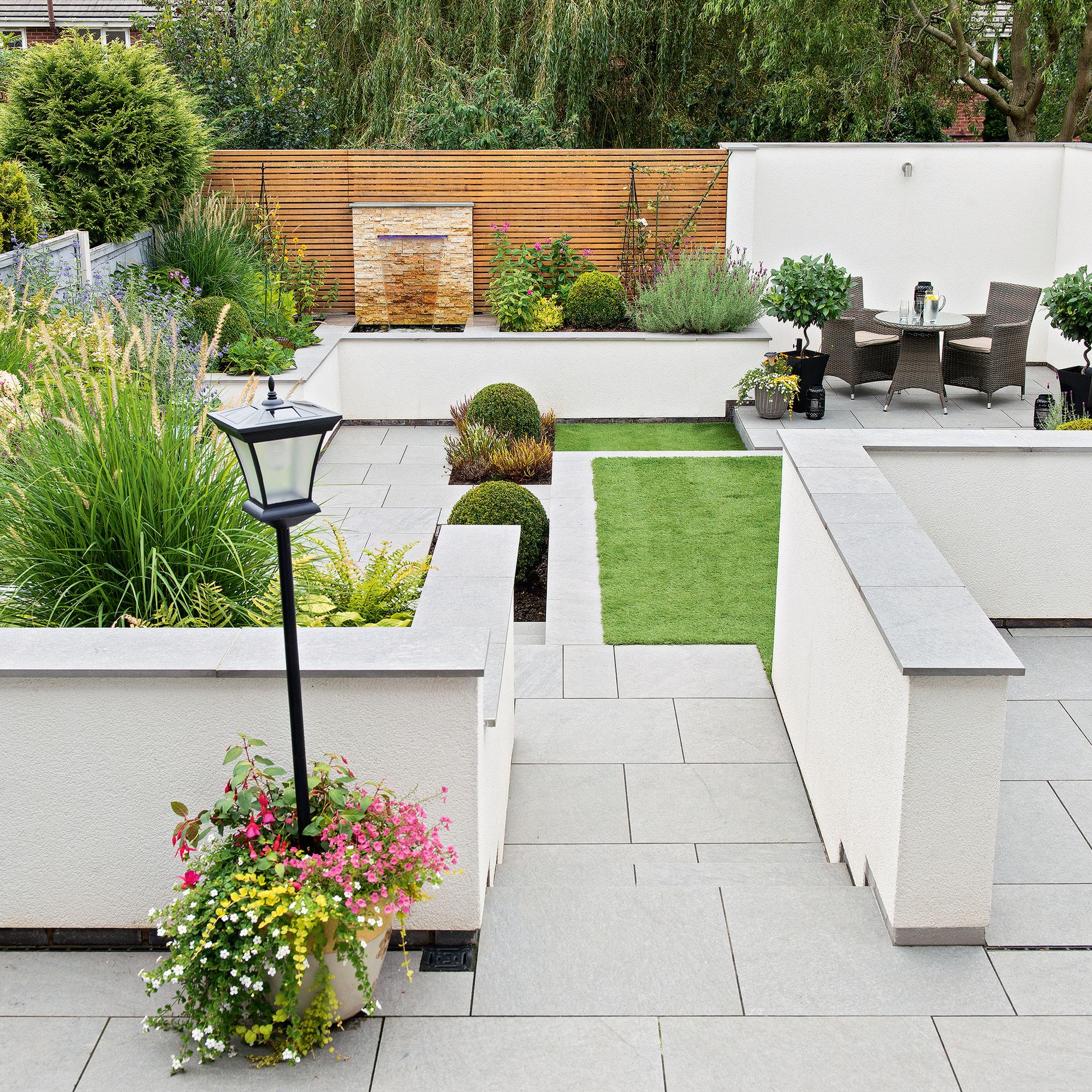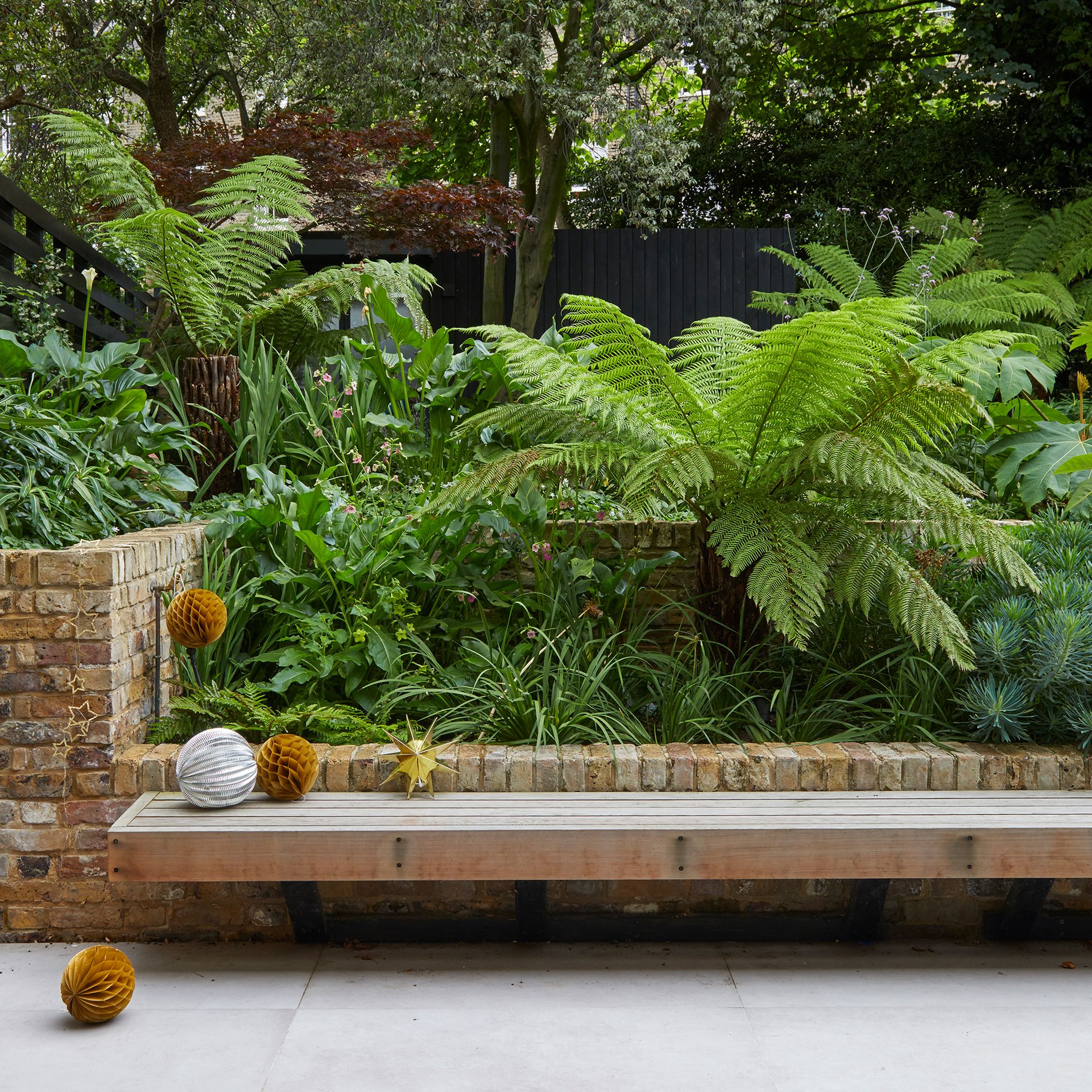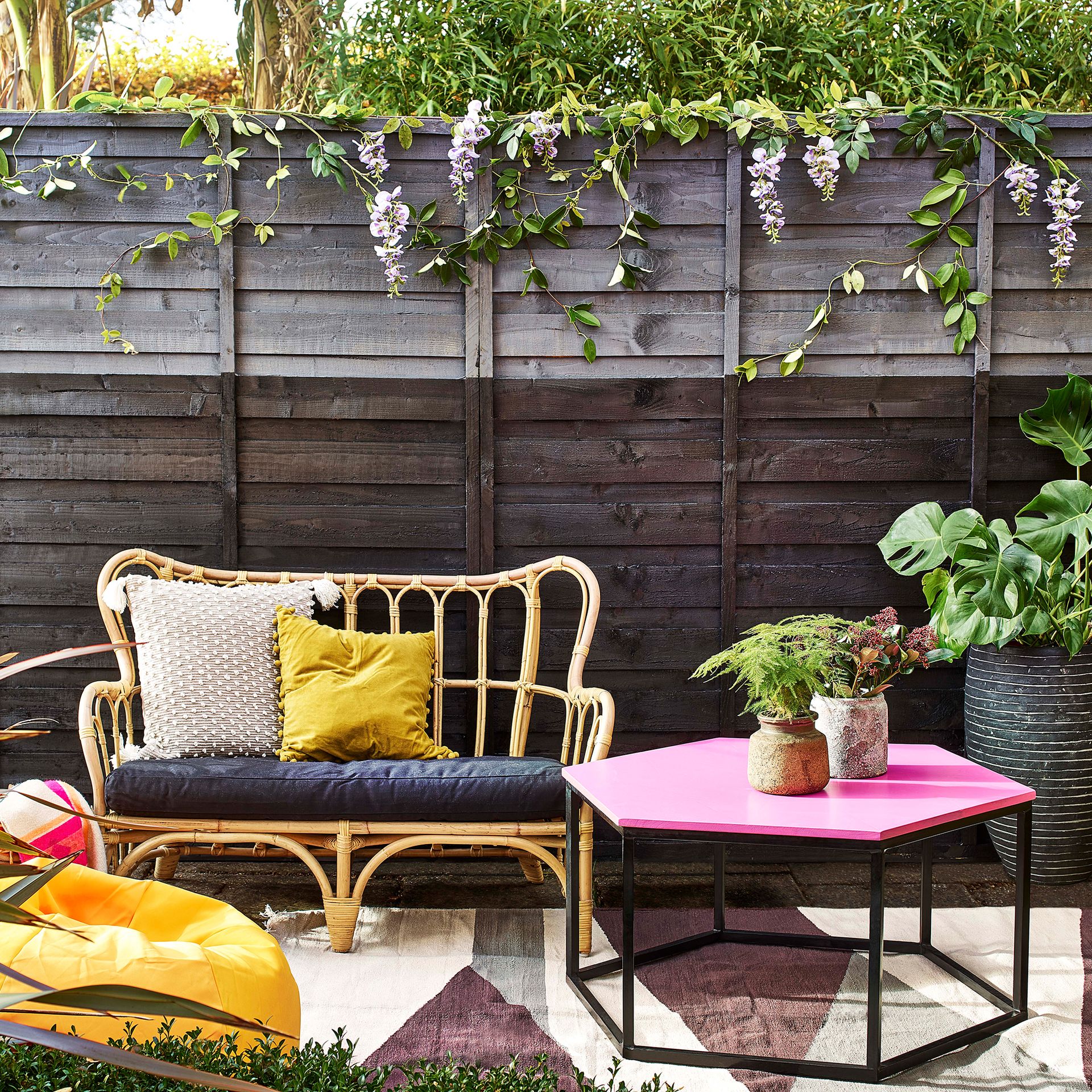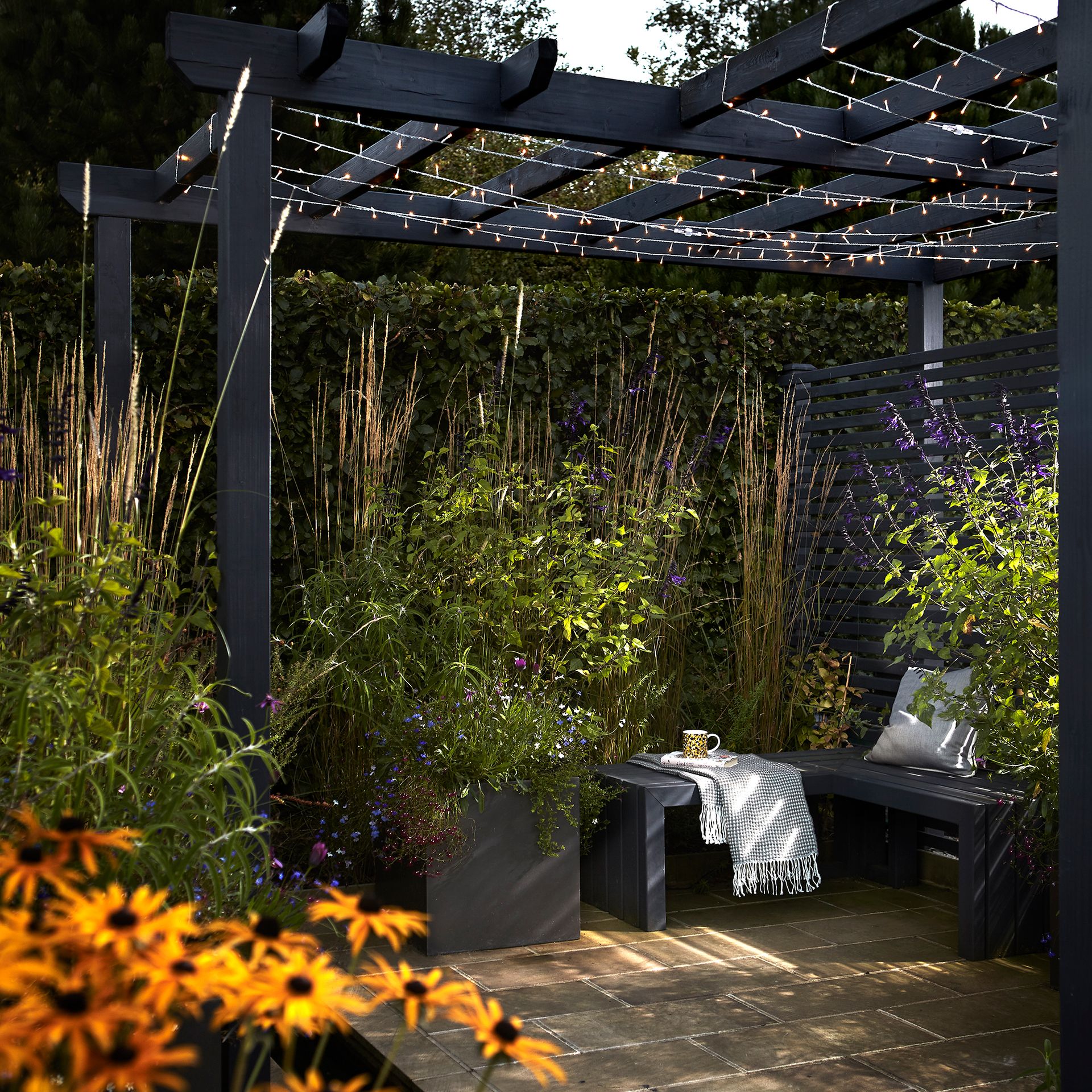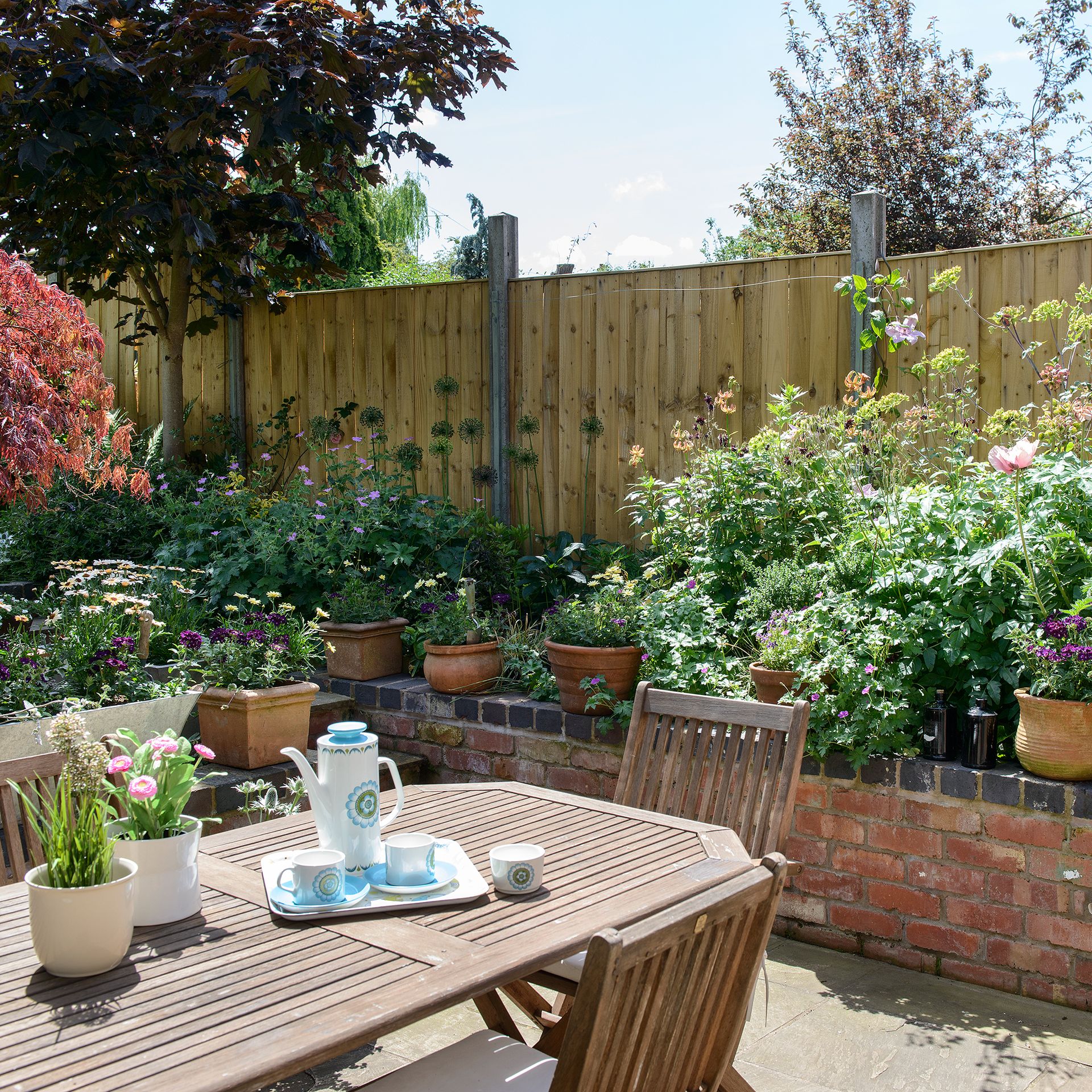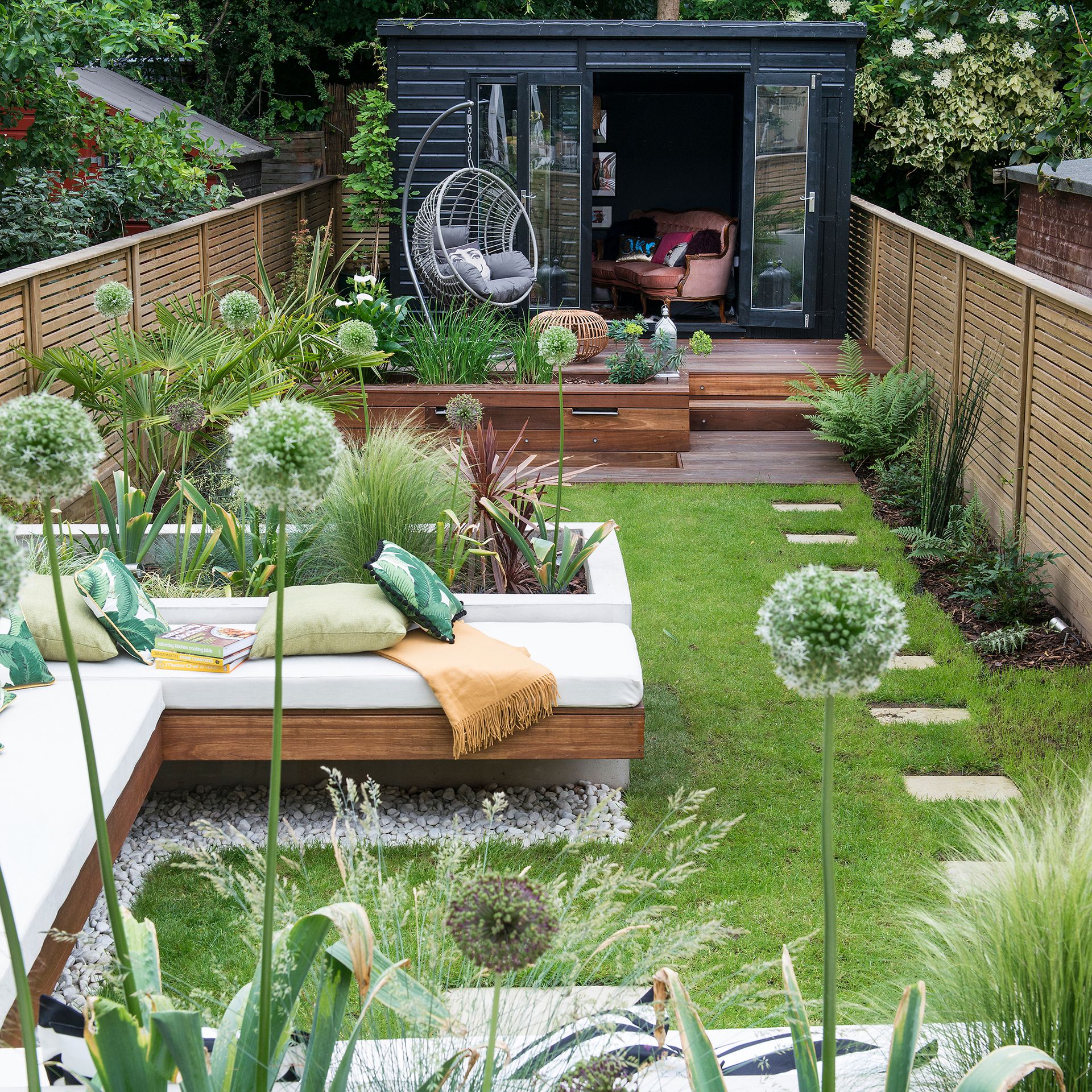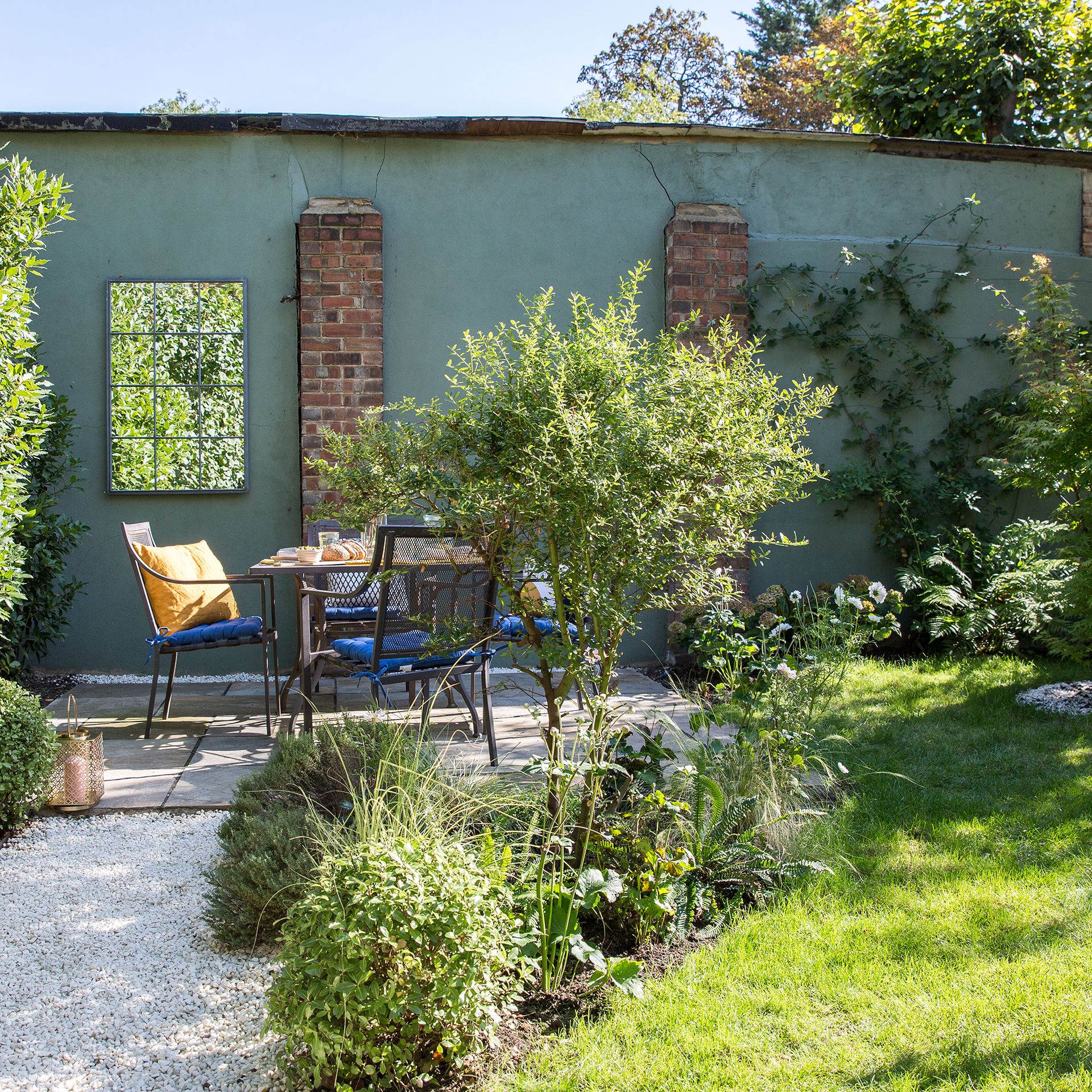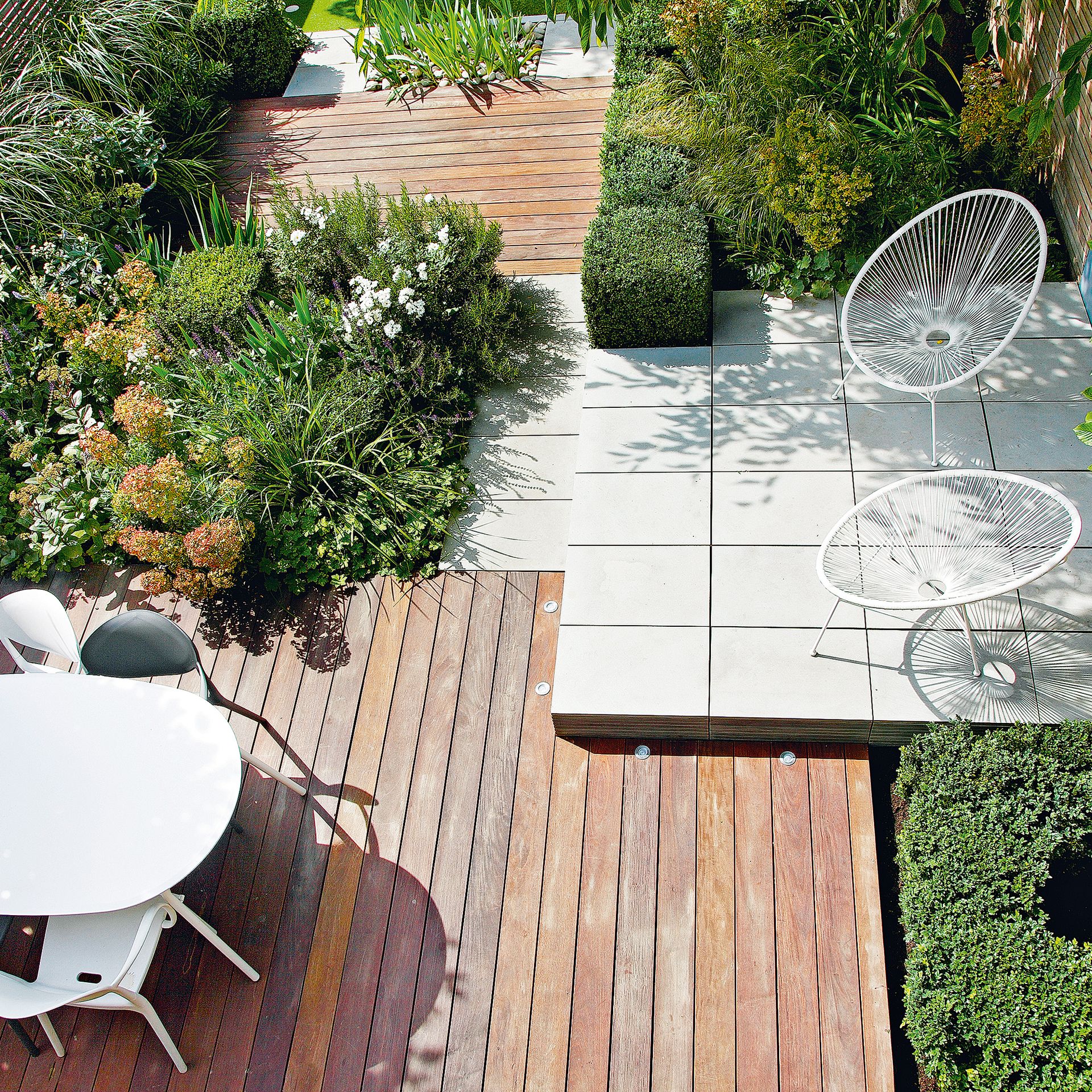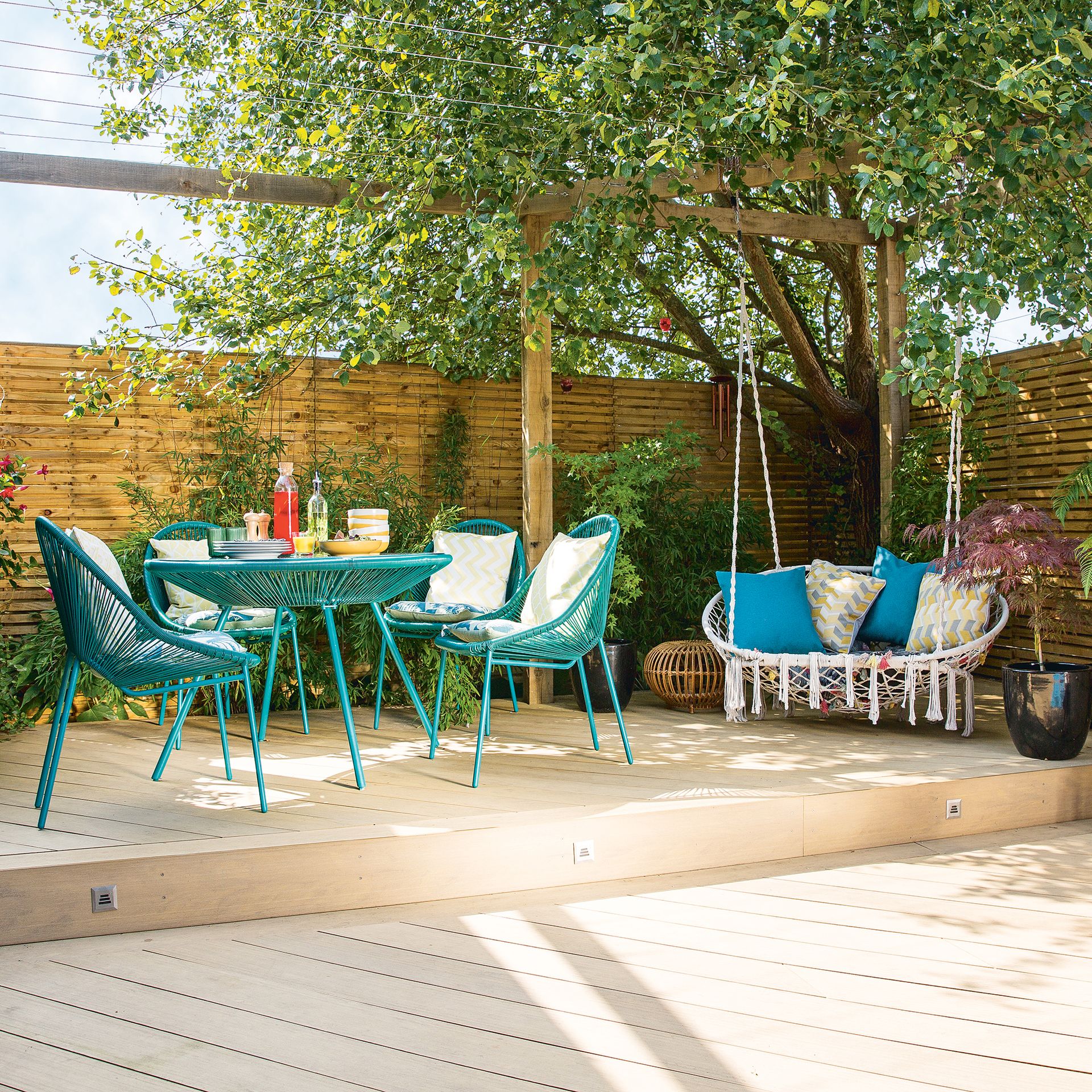New build garden ideas to fill a new outdoor space with character
Gardens never go out of fashion, and after a dedicated parking space, a garden is the second most in-demand feature of a new-build home; 34 per cent of buyers put being able to create an outdoor haven on their wish list, according to research by estate agents Warwick Estates.
Having your own outdoor space is brilliant, but taking on a typical empty new-build plot can be overwhelming, especially for first-time or less-experienced gardeners who until now, might have only had to care for a couple of pots.
When it comes to looking for new-build garden ideas, many new-build homeowners find themselves daunted, confused about what to plant and how to care for all these new flowers, shrubs, trees and even crops, worried about how to divide up the space well and anxious to ensure that their new garden will be easy to look after and thrive.
New-build garden ideas
Thinking about garden ideas for your new home is exciting, trust us, so if you’re wondering how to plan a garden read on for tips and inspiration from the experts.
1. Introduce levels with raised beds
(Image credit: Future PLC)
Many new-build gardens can be very one-dimensional, simply a flat rectangular plot to start with. A great way to add immediate appeal is to build raised beds, so you might have to find out how much garden landscaping costs before you get started.
Raised beds will create at least one further level of interest when filled with plants. Paul Firmin and Niko Dafkos, founders of lifestyle brand Earl of East (opens in new tab), added raised beds to their new-build home in Leyton, east London. ‘The garden was literally a patch of mud when we moved in,’ says Paul.
‘We built the raised beds and the seating area, and then paved it and filled it with evergreen plants. In the summer months, when we open the windows, it becomes an extension of the living space. We eat out there quite a lot, which is nice.’
2. Bring in borders
(Image credit: Future PLC)
Every garden needs borders, whether you go for angular edges to create a contemporary look, sweeping curves to accommodate a modern cottage garden or practical log-rolled edged borders filled with virtually indestructible year-round-interest plants such as Cordylines and Acanthus to add shape to a practical family-oriented garden.
Don’t assume all borders must be filled with brightly-coloured sunshine-loving plants. If you need north-facing garden ideas for your new build plot consider making a border with shade-lovers such as ferns and hostas, it will bring interesting leaf shapes to an evolving outdoor plot.
Pro tip: A good tip from the RHS is to create a new border that’s a little larger than you think, because plants will grow and spread more than you might expect.
3. Paint fences in dark neutrals
(Image credit: Dulux)
One of the most immediately noticeable issues with a new-build garden is that you feel boxed in by surrounding walls and fences. You need to delineate your own private space and create a comfortable haven at the same time, so start with addressing the boundary.
Paint or stain fences a dark neutral colour such as charcoal, olive green or black; this will help pull your own space in around you. Darker colours also provide a stunning backdrop for plants, at all times of the year.
4. Use tall grasses for privacy
(Image credit: Lights4fun)
Even if you like getting to know your neighbours, there are times when everyone needs privacy. One ambitious new-build garden idea we like is to plant a mini-grove of trees such as white-trunked silver birches to create shade and a wildlife habitat. However, these ideas don’t just need to be reserved for the back of the house.
Front garden ideas can benefit from tall grasses such as miscanthus which will create a delicately moving privacy screen, oodles of kerb appeal and are super-easy to care for too.
5. Invest in fast-growing plants
(Image credit: Future PLC / Colin Poole)
You need to make an instant impact in a new-build garden, so go for fast-growing plants such as buddleia and lavatera; both thrive in fairly poor soil too.
A new-build garden can feel a little soul-less until it becomes established, but there’s one way to bring in life – attract bees and butterflies and other pollinators to start buzzing around. ‘Don’t forget to consider how your garden could support local wildlife and pollinators,’ says Tom Luck, gardens expert at Growing Revolution (opens in new tab)‘There are a range of simple and low-maintenance plants you can grow that welcome and support bees and butterflies.’
The RHS has a really useful ‘Plants for Pollinators’ online guide (opens in new tab) and recommends Achillea, cornflower and fleabane, easy-to-grow flowers ideal for new-build gardens as they will thrive in poorer soils.
6. Give your soil its best chance
(Image credit: Future PLC )
New-build gardens are notorious for having poor soil; often it’s riddled with random bits of rubble, compacted solid and lacking in nutrients. But every garden needs this vital ingredient to grow, so if you have dreams of gorgeous floral borders you will likely have to take action.
‘Before investing in plants, designs or hard labour, invest in knowing what lies beneath to avoid wasting time and money,’ says Jonathan Hill, sales director and lawn care expert at turf company Rolawn (opens in new tab). ‘You might need to test your soil to find out exactly what issues – if any – you are dealing with (you can buy basic soil test kits online, for around £5 (opens in new tab) ). Dig down and inspect the soil. The most likely requirement will be organic matter and nutrients combined with decompaction because construction uses heavy machinery that compacts the soils.’
The RHS recommends farmyard manure. Rich in organic matter, it can be bought bagged up at garden centres. Full of nutrients, it’s best applied in autumn or winter, to give it plenty of time to rot down before new growth begins in springtime.
7. Add character by re-shaping the lawn
(Image credit: Future PLC / Lizzie Orme)
That blank canvas needs character. One of the quickest and most satisfying ways to stamp your identity on a new garden is to re-shape the lawn. Circles and gentle curves work really well in smaller plots because they add intrigue and make the space feel more welcoming.
Even though your new-build house will be built of brand-new bricks or other modern materials, you may also like to bring in appealing textures, such as vintage bricks, containers and large planters. This will add depth and dimension to the space, especially when trailing and climbing plants such as ivy and clematis start to establish themselves.
8. Include easy to care for hard landscaping
(Image credit: Future PLC)
We do love a nice lawn, but if you’re really keen on easy garden ideas consider getting rid of it altogether and swap it for easy-to-look-after hard landscaping instead. Paving – whether traditional stone or contemporary porcelain – looks great, but it’s a big investment you might not want to make if you’ve just moved in.
A good inexpensive alternative is to lay a good thick layer of gravel instead, ideally on flat ground over a weed-proof membrane. It’s quick and easy to do and can be replaced if it starts to look shabby.
9. Include a space for outdoor entertaining
(Image credit: Future PLC)
Gardens are prime spots for a summer party, so give lots of thought to the best garden furniture for your outdoor space.
When you’re deciding where to place your new sofa set or al fresco table and chairs, it’s important to think about surrounding planting too. Consider zoning your garden into welcoming areas, using attractive and aromatic plants in large containers to delineate different spaces, and carefully positioning furniture to take advantage of shade from any existing trees.
10. Introduce shaded elements
A new-build home can feel very open to the elements – and the next-door neighbours – but if you consider garden shade ideas you can add a ‘false ceiling’ to your outside space which will help to make you feel relaxed and protected.
Quick shade fixes include a large, secure umbrella or a sail suspended from hooks in the wall. If you like the look and feel of being undercover, you can later consider a permanent structure such as a pergola or an awning which will extend from the back of the house.
How do you plan a brand-new garden?
Measure the outdoor spaces you’re planning for seating, entertaining and planting, so you can begin to develop a clear idea of the scale of the job and how much the work is going to cost.
If you’re struggling with establishing this big picture, you might be wondering how much a garden designer costs as professional help can be invaluable at this stage. Many garden designers will just draw up plans and advise on planting, which can be a cost-effective option.
If you decide to engage a professional, research garden designers online and look at their portfolios for inspiration, picking one whose style matches your own. ‘Consider how much you’re willing to invest and double it!’ says garden designer Robert Hughes (opens in new tab). ‘Gardens built to last require considerable investment. Do you value your outdoor space enough to spend that much and are you willing to invest the time into maintaining it? Good garden designers and contractors are always booked up, so you may need to plan ahead and wait six months.’
If you’re designing it all yourself, don’t be afraid of getting stuck in. Everyone makes mistakes with a new-build garden at first, so don’t worry too much if something doesn’t quite work.
‘When it comes to planting, research into different planting styles and focus on colour schemes,’ says Robert. ‘It’s hard to go wrong with planting colours so have fun with it but try and be restrained; less is often more. Repetition is key, repeat the same colours around the garden for a bold and striking effect.’
How do you seed a new garden?
You can seed a lawn from a scratch in a new-build garden, but it will be quite a challenge. If you want to do it, you’re going to have to dig and turn over any existing soil and bring in fresh topsoil (see point 6 about improving soil quality), raking it carefully to prepare the perfect base for grass seed.
A freshly-seeded lawn also requires very regular watering, at least once a day until it is established. And if you have pets and children, it’s difficult to keep them off the growing area.
Turf is a more practical option. It’s possible to lay it yourself, on a well-prepared bed. But it will need lots of water in the first few weeks so avoid laying turf in high summer or frosty conditions. ‘Always use a high-quality lawn turf,’ says Jonathan Hill. ‘With a good base, real grass brings many environmental benefits and lasts a lifetime. It’s particularly good for creating a garden that can grow and adapt to the needs of a growing family. With a little care, it will last long beyond the new-build phase.’
Where do I start my new-build garden?
It can be hard to know where to start a new-build garden, but the best advice is to look at the interior of your home and work out from there. Think about the colours and styles you like. Look for ideas in magazines, catalogues and online which fit the theme and start to pull together a physical or Pinterest mood-board.
‘Remember that continuity creates the most beautiful spaces,’ says garden designer Robert Hughes. ‘But when you’re narrowing down your ideas, keep it subtle. Too many clashing materials can leave a your new-build garden feeling busy and confused.’

